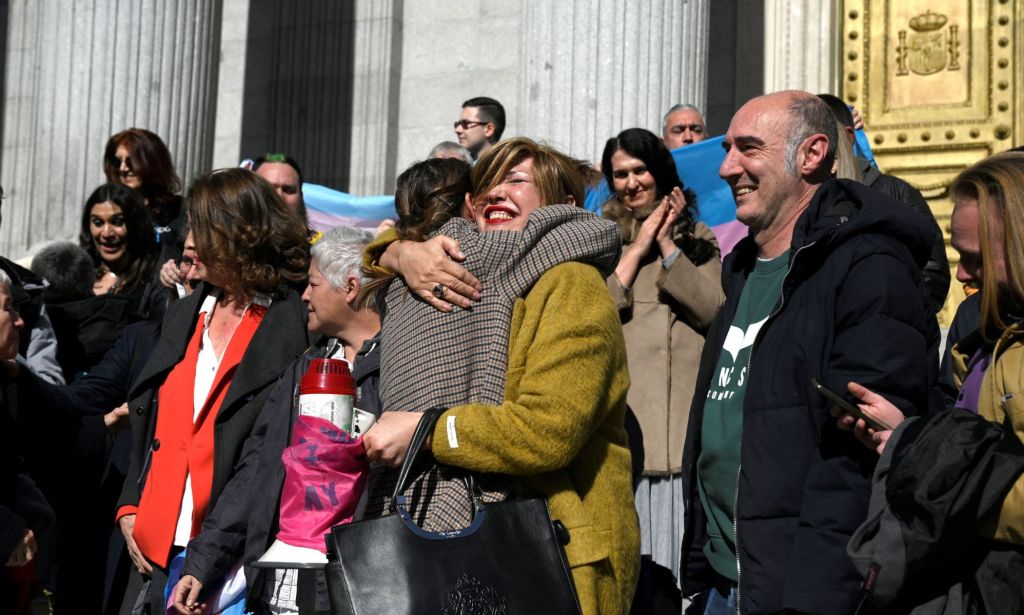Laws banning drag performances have been introduced in legislative sessions in at least 14 states this year, and their potential effects are much more far-reaching than entertaining shows.
An alarming number of anti-LGBTQ+ (particularly anti-transgender) bills continue to be introduced; the ACLU is tracking 278 of them across 33 states. While many target bathrooms, IDs, books, healthcare, education, and sports, a newer trend this year is attempting to ban drag.
Republican state legislators in Arizona, Arkansas, Idaho, Kansas, Minnesota, Missouri, Montana, Nebraska, North Dakota, Oklahoma, South Carolina, Tennessee, Texas, and West Virginia have all introduced various bills on this theme.
Sybastian Smith, Director of Organizing for the National Center for Transgender Equality, says there are about 32 bills that seek to ban drag shows currently in state legislatures.
“Five of these bills have specified that exposure to the LGBTQ+ community is child abuse, most of these bills ban minors and ban drag performers from public spaces,” Smith told LGBTQ Nation. “In fact, about six of these bills have defined drag performers as people who dressed and expressed differently from their ‘biological sex’ or ‘gender identity,’ and we have concerns that this also applies to everyday transgender people.”
Like other anti-transgender bills that seek to ban gender-affirming health care or access to public accommodations, these bills are part of a nationwide effort to legislate trans people out of existence, transgender rights advocates say.
“These bills are framed as an attack against drag performers, but it actually seeks to criminalize the very existence of transgender people by labeling gender expression and gender-affirming clothing as ‘drag,’” Smith says.
Zooey Zephyr, who took office last month as the first and only transgender woman in the Montana House of Representatives, agrees.
“These bills are designed both to ostracize and shun LGBTQ people and trans people specifically from the public and also to embolden the people who harbor anger and hatred towards trans people,” she told LGBTQ Nation. “It is clear based on the similar bills we’re seeing across the country, based on the comments of Republican presidential hopefuls for 2024 that anti-trans rhetoric is becoming a core part of the far right.”
House Bill 359 in Montana would ban minors from attending drag shows, ban drag performances from public libraries and schools, and ban minors from entering any business that provides a drag show (labeling any such business a “sexually oriented business”). A drag performance is defined in the bill as “a performance in which a performer exhibits a gender identity that is different than the performer’s gender assigned at birth using clothing, makeup, or other physical markers and sings, lip syncs, dances, or otherwise performs for entertainment to appeal to a prurient interest.”
Zephyr is concerned that this wording could apply broadly not only to drag performers but to any transgender person in certain situations, such as a transgender parent singing to their child, a transgender actor in a local theater troupe, or even a transgender child dancing. The broad potential interpretations leave many hypotheticals to the imagination, such as if high school productions of Hairspray or As You Like It would ever be allowed again.
The Montana bill targets minors’ access to drag specifically, as do many other states’ bills that classify drag as an adult-only activity.
Drag queen story hours have become a popular way to share children’s books with LGBTQ+ content outside a school setting, where such books have become increasingly banned. After books with life-saving representation have been pulled from library and school shelves, it has been dangerous to even attend drag storytimes to access them. GLAAD reported at least 141 anti-drag protests, attacks, or significant threats in 2022, including drag story hours, brunches, and bingo events. The attacks included multiple incidents of armed Neo-Nazis disrupting or protesting drag events, including those with children present.
Now several states want to criminalize those events altogether, but this isn’t the first time in U.S. history this has happened.
“These attacks are not new,” Smith says. “Historically, we have seen extremists use harmful rhetoric like this for decades.” He points to anti-crossdressing laws in the 19th and 20th centuries that were one element of anti-LGBTQ+ persecution that protestors at the Stonewall Inn fought back against. Police routinely used these laws as excuses to harass and arrest LGBTQ+ people when they had no other charges they could use, such as catching someone in the act of sodomy.
Today, Smith, Zephyr, and others are concerned that anti-drag laws will be used to target transgender people who are not drag performers, just like the laws repealed decades ago.
The most broadly written bills, like Tennessee’s House Bill 9 and North Dakota’s House Bill 1333, ban drag from being performed on any public property, which would mean drag would not be permitted at Pride events. It could also theoretically mean that a transgender person dressing in clothing matching their gender identity but not their sex assigned at birth could be arrested if they did anything constituting a performance, such as lip-syncing to a song they were listening to.
In Tennessee and North Dakota, a first offense carries a penalty of up to nearly one year in prison, a fine of $2,500 to $3,000, or both. A second offense would be a felony and could carry a penalty of up to five to six years in prison and additional fines.
Drag performers, transgender people, loved ones of transgender people, activists, and others have been speaking out in opposition to these bills at hearings across the country. Zephyr urges others to raise their voices against these bills, a task that falls to the grassroots since there are no federal protections.
“These attacks are going to continue to escalate until we as a community—as trans people, as legislators, our friends, families, and neighbors who love and care about us—stand up and say that these policies need to stop, that trans people belong.”


